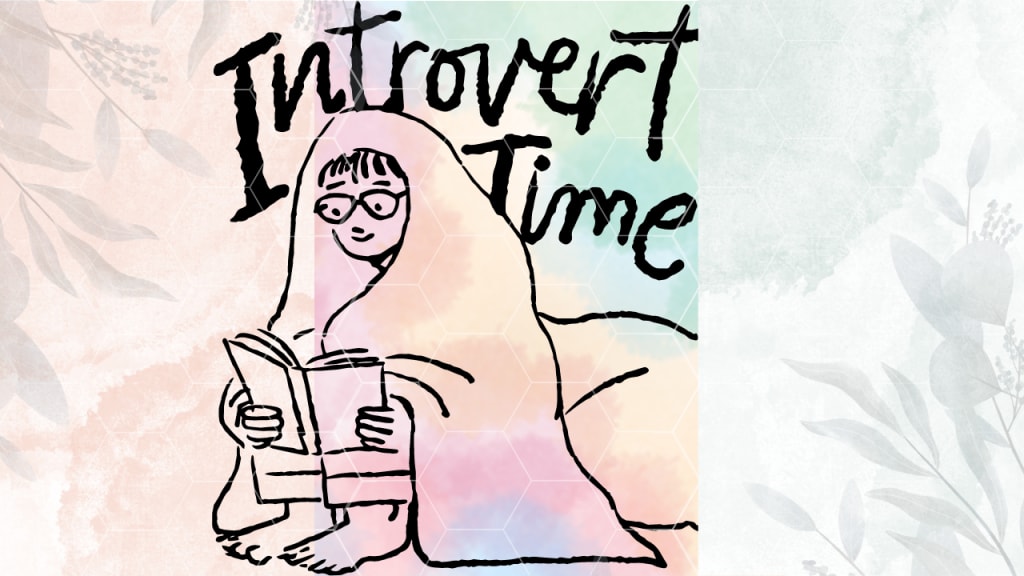
People often think of introverts as shy and shy people as introverts. But there is more to introversion than that. The quiet kid who rarely spoke up in class might also be an introvert, for example. Introverts are people who recharge by spending time alone rather than being around other people.
There are four different types of introverts according to research by a psychology professor at Wellesley College. These types take into account the varied personalities of introverts and acknowledge that introversion is a spectrum.
4 Types of Introverts
One, Social Introverts. Out of the four types I am going to share, social introverts are the most outgoing and private. They don't feel bashful or restless in group environments and may try to appreciate them, yet they feel sincerely depleted on the off chance that they stay out for a really long time. Even though social introverts prefer to spend time alone, they still want a few reliable friends, and they tend to be the most social when they are with these friends. Somebody who doesn't realize them could try and accept they are a social butterfly assuming that they meet them when they are spending time with their dear companions. Social introverts, on the other hand, won't talk much about themselves to anyone but their closest friends.
Two, an analytical introvert in other words, Thinking Introvert . The image of the daydreaming wallflower can be conjured here. Thinking introverts also enjoy socializing, but they rarely do so because they are too caught up in their own world. They frequently end up staring off into space and may appear detached to the individuals who don't have any acquaintance with them. Thinking self observers are likewise exceptionally thoughtful and accordingly more on top of their sentiments than the typical individual. Because they have a distinct way of thinking and prefer to experience their thoughts rather than expend the time and energy explaining them to others, thinking introverts may be difficult to connect with for other people.
Three, Restless Self observer or Anxious Introvert. Is there anyone you know who might relive social encounters in their head and consider what they said or did and what they could have done differently? Maybe a superior mark for the restless contemplative person is the bashful loner, to separate restless self preoccupation from nervousness problems. Even when they are with close friends, anxious introverts long for solitude. They are extremely uneasy in new or large social settings, and whenever they are in public, they analyze or ponder their actions. However, it means quite a bit to pay special attention to social tension problems and not have the two blended. In outrageous cases, this antipathy for social circumstances might form into social uneasiness. Although social anxiety and other anxiety disorders can affect people of any personality type—introverts, extroverts, and ambiverts included—avoiding necessary social situations because you experience strong physical reactions like shaking, increased heart rate, or nausea during them is a sign of social anxiety rather than shyness and requires professional attention.
Four, limited thoughtful person or Restrained Introvert. This is the kind of introvert who lives next door. When they feel rushed into situations, especially social ones, they feel uncomfortable. Limited self observers are saved, insightful and could do without change. They will go out assuming they've anticipated it far enough ahead of time, yet they would prefer to be unwinding without anyone else: gorging their number one shows, perusing, or doing yoga. Restrained introverts may have trouble getting their minds and bodies moving as soon as they wake up because they find comfort in their routine. They flourish in their everyday practice and value more than adequate admonishing.
If you don't identify with any of these four personality types but think you are an introvert, you might be an ambivert or more on the extrovert side of the spectrum. Knowing more about your personality type makes it easier to communicate your needs to people of different personality types and improves relationships with other people.
Did you find this to be instructive? Will you now be able to distinguish between the various types? Do you have any other suggestions? Assuming you're a self observer, which of these four sorts did you connect with? Find out what type of introvert they are by sharing this with someone you know!
About the Creator
Jelly Ace
Welcome to my page! I am here to share what I learn and become a platform where everyone can have a healthy conversation. Lets learn together and exchange ideas coz we are all GREAT!
Always remember to start your day with a SMILE!






Comments
There are no comments for this story
Be the first to respond and start the conversation.